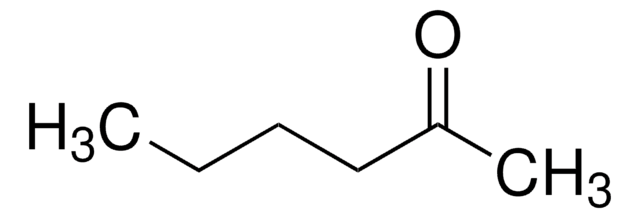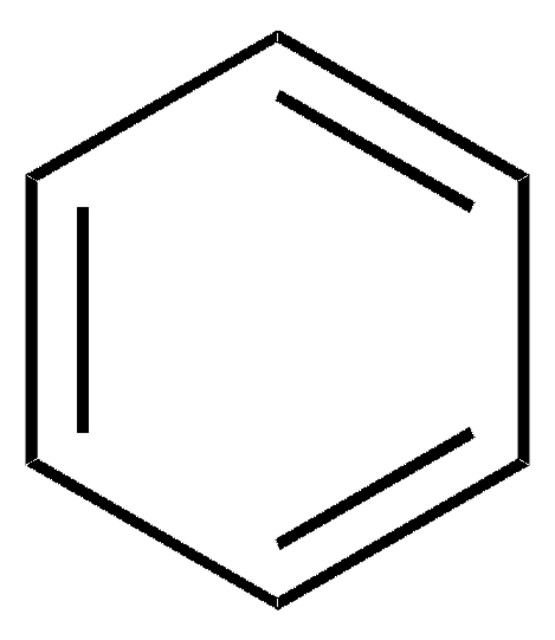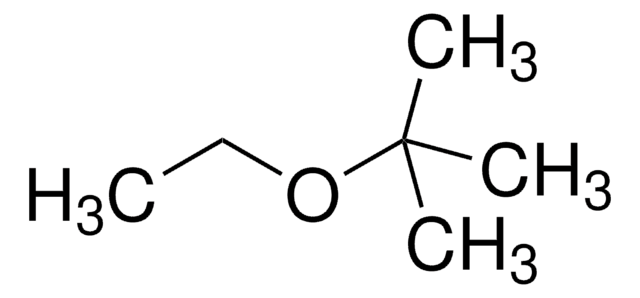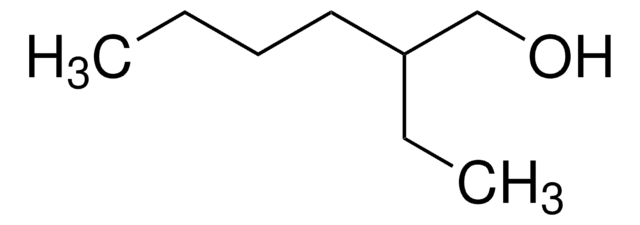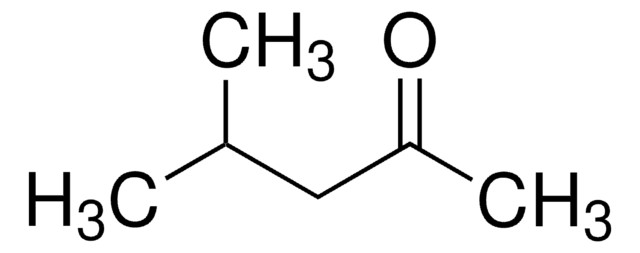47733-U
2-Hexanona
analytical standard
Sinónimos:
Butilmetilcetona
About This Item
Productos recomendados
grado
analytical standard
Nivel de calidad
Agency
ASTM® D5580
presión de vapor
10 mmHg ( 39 °C)
CofA
current certificate can be downloaded
envase
pkg of 5 mL
técnicas
HPLC: suitable
gas chromatography (GC): suitable
índice de refracción
n20/D 1.401 (lit.)
bp
127 °C (lit.)
mp
−57 °C (lit.)
densidad
0.812 g/mL at 25 °C (lit.)
aplicaciones
cleaning products
cosmetics
food and beverages
personal care
petroleum
Formato
neat
temp. de almacenamiento
2-30°C
cadena SMILES
CCCCC(C)=O
InChI
1S/C6H12O/c1-3-4-5-6(2)7/h3-5H2,1-2H3
Clave InChI
QQZOPKMRPOGIEB-UHFFFAOYSA-N
¿Está buscando productos similares? Visita Guía de comparación de productos
Descripción general
Aplicación
Información legal
Palabra de señalización
Danger
Frases de peligro
Consejos de prudencia
Clasificaciones de peligro
Flam. Liq. 3 - Repr. 2 - STOT RE 1 - STOT SE 3
Órganos de actuación
Central nervous system
Código de clase de almacenamiento
3 - Flammable liquids
Clase de riesgo para el agua (WGK)
WGK 1
Punto de inflamabilidad (°F)
73.4 °F - closed cup
Punto de inflamabilidad (°C)
23 °C - closed cup
Equipo de protección personal
Eyeshields, Faceshields, Gloves, type ABEK (EN14387) respirator filter
Elija entre una de las versiones más recientes:
¿Ya tiene este producto?
Encuentre la documentación para los productos que ha comprado recientemente en la Biblioteca de documentos.
Protocolos
US EPA Method 8260: GC Analysis of Volatiles on SPB®-624 after Purge & Trap using "K" Trap, Fast GC Analysis
Nuestro equipo de científicos tiene experiencia en todas las áreas de investigación: Ciencias de la vida, Ciencia de los materiales, Síntesis química, Cromatografía, Analítica y muchas otras.
Póngase en contacto con el Servicio técnico